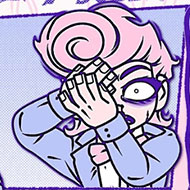

We Become What We Behold is a brief yet potent interactive commentary that dissects the cyclical relationship between media focus and societal evolution. It forgoes conventional goals to instead demonstrate how media amplification of singular events can irrevocably alter a collective’s behavior. Through minimalist mechanics and a focused narrative, it etches a powerful, lingering message.
Acting as an invisible spectator, the player uses a camera to document a small, self-contained society. Initially, this world is a portrait of mundane normalcy. The core mechanic rests on choosing which incidents to photograph; these snapshots are then fed back to the populace. This act of selection initiates a transformative feedback loop, steadily steering the society from order toward chaos.
The game’s accessible presentation masks a profound critique of modern media consumption. It posits that a selective focus on extremity—conflict and shock—does not merely report on society but actively reshapes it. The experience becomes a metaphor for how highlighted narratives dictate behavioral norms, transforming observation into a catalyst for change.
The game’s short duration is meticulously paced to mirror its theme. It opens with a light, almost whimsical atmosphere that the player’s own actions systematically corrupt. The tone darkens in lockstep with the escalating on-screen chaos, building to an inevitable and sobering conclusion about the non-neutrality of selective attention.
We Become What We Behold’s value is rooted in contemplation, not repetition. While one can revisit to catch minor variations, its primary power is the cognitive afterimage it leaves. It stands as a benchmark for how interactive media can provoke discourse, achieving significant depth without reliance on complexity or scale.
By fusing straightforward interaction with incisive social analysis, We Become What We Behold demonstrates that profound impact requires neither length nor intricacy. It holds a mirror to the player, challenging them to consider their own agency: are we the curators of our reality, or does our curated reality ultimately remake us?